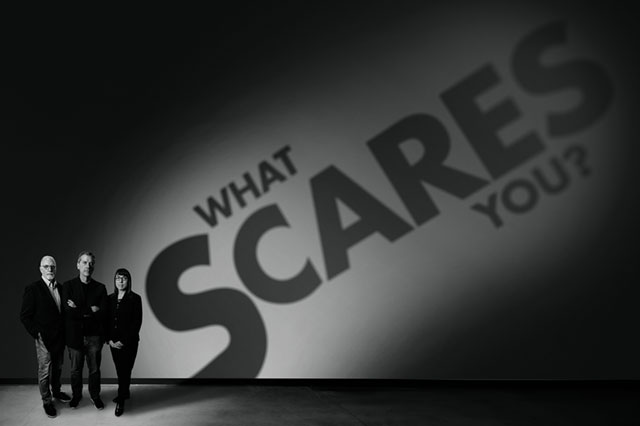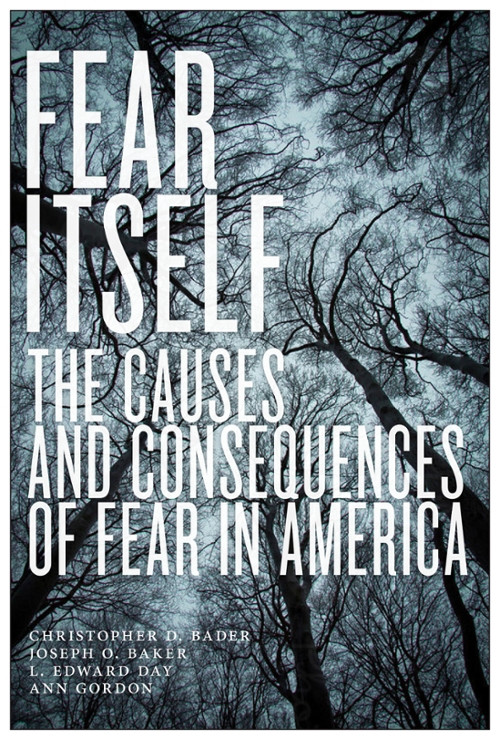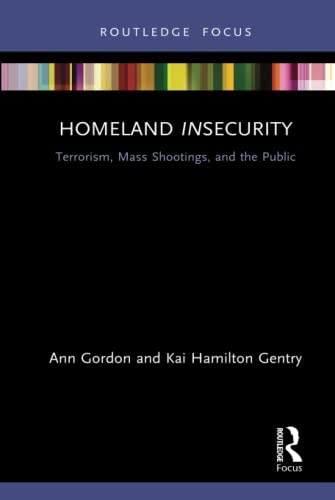
What are Americans really afraid of? Find out the Top 10 fears for 2025, taken from the Chapman University Survey of American Fears. Fears are ranked by the percent of Americans who reported being afraid or very afraid.

What are Americans really afraid of? Find out the Top 10 fears for 2025, taken from the Chapman University Survey of American Fears. Fears are ranked by the percent of Americans who reported being afraid or very afraid.
In keeping with the Babbie Center’s mission to address critical social issues through cutting edge social science research, we have engaged in an unprecedented, on-going study of fear in America. Now in its 10th year, the Chapman Survey of American Fears (CSAF) asks a representative national sample of Americans about more than 90 fears and related behaviors. The FEAR survey has been cited in over 1,000 print, broadcast and online media, including the New York Times, The Huffington Post, CBS This Morning, Yahoo News, NPR, Good Housekeeping, the Washington Post, USA Today, Rolling Stone, and TIME.
Student researchers are a central part of the FEAR project. They are involved in every aspect of the survey, from researching new content areas, to writing questions and analyzing results. In addition, more than 100 undergraduate research projects have used the CSAF, these are archived in Chapman University’s Digital Commons.






Please contact the Chapman Public Relations Office at:
pr@chapman.edu
(714) 744-7677
2024
2023
2022
2020/21
2019
2018
Fear Survey Infographics 2018
By Christopher D. Bader, Joseph O. Baker, L.Edward Day and Ann Gordon
 Foreward by Earl Babbie
Foreward by Earl Babbie
Published by: NYU Press
An antidote to the culture of fear that dominates modern life
From moral panics about immigration and gun control to anxiety about terrorism and natural disasters, Americans live in a culture of fear. While fear is typically discussed in emotional or poetic terms—as the opposite of courage, or as an obstacle to be overcome—it nevertheless has very real consequences in everyday life. Persistent fear negatively affects individuals’ decision-making abilities and causes anxiety, depression, and poor physical health. Further, fear harms communities and society by corroding social trust and civic engagement. Yet politicians often effectively leverage fears to garner votes and companies routinely market unnecessary products that promise protection from imagined or exaggerated harms.
Drawing on five years of data from the Chapman Survey of American Fears—which canvasses a random, national sample of adults about a broad range of fears—"Fear Itself" offers new insights into what people are afraid of and how fear affects their lives. The authors also draw on participant observation with Doomsday preppers and conspiracy theorists to provide fascinating narratives about subcultures of fear.
"Fear Itself" is a novel, wide-ranging study of the social consequences of fear, ultimately suggesting that there is good reason to be afraid of fear itself.
Praise for Fear Itself:
"Those of us who study fear have long been grateful for the Chapman University Survey of American Fears. In this important book, the scholars behind that survey examine their data and provide invaluable insights into what Americans fear and the effects of those fears."
Barry Glassner, author of The Culture of Fear: Why Americans Are Afraid of the Wrong Things
"A careful, well-reasoned, and convincing study of fear in contemporary American society."
Steve Pfaff, University of Washington
 Homeland Insecurity
Homeland InsecurityBy Ann Gordon and Kai Hamilton Gentry ('17 Political Science)
In this book, Ann Gordon and Kai Hamilton Gentry (Political Science, Class of 2017) expertly illuminate how the public has a role to play in ensuring its own security.